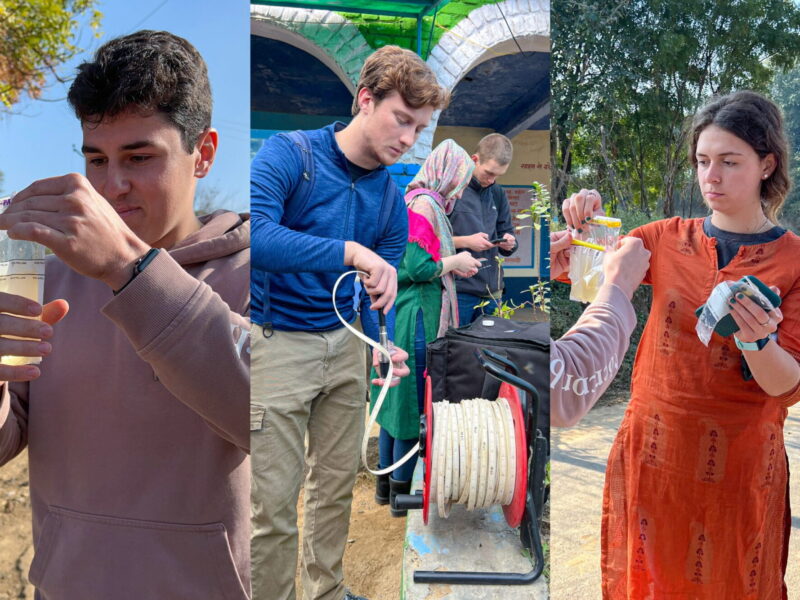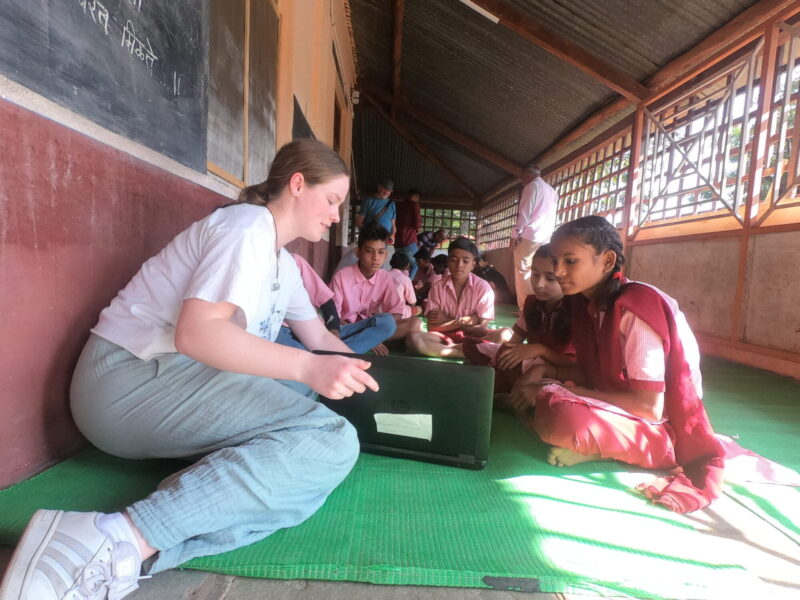Study Abroad Sustainability:
The Rise of Sustainability and
Social Impact in Study Abroad
In an era deeply marked by global challenges—from climate change to social inequalities—the importance of education that not only enlightens but also conscientizes has never been more acute. This is where the concepts of sustainability and social impact in study abroad experiences come into sharp focus. Study abroad programs are more than just an academic journey; they’re a step towards a sustainable future. If integrated with sustainability or socially impactful related projects, they transform students into global citizens and responsible change-makers.



For instance, we, at Authentica, integrate the United Nations Sustainable Development Goals (SDGs) into our programs. It offers students not just a global education but an ethically anchored, sustainability-focused learning journey.
Understanding the Shift
The traditional allure of studying abroad has been predominantly about exploring new cultures, gaining international exposure, and enhancing language skills. However, with the increasing urgency for global sustainability, the narrative is shifting. Today’s students are more environmentally conscious and socially aware, seeking experiences that contribute positively to the world. This paradigm shift mirrors the broader, pressing need for education systems worldwide to embrace sustainability and ethical responsibility.
The Benefits of Sustainability and Social Impact
focused Study Abroad
1. Enhanced Global Perspective
Sustainability and social impact-focused study abroad experiences profoundly broaden a student’s worldview. When students witness and engage with different societal challenges and environmental issues firsthand, they develop a more comprehensive understanding of global interconnectedness. This awareness goes beyond academic knowledge; it cultivates empathy and a deeper appreciation of different cultures and their approaches to addressing global challenges. Such experiences compel students to think about the impact of their choices and actions in a global context, fostering a sense of global citizenship and responsibility.
2. Improved Employability
In an increasingly interconnected and environmentally conscious world, employers are looking for candidates who not only have technical skills but also bring a global perspective and ethical consciousness to their roles. Participation in such study abroad programs signals to future employers that a graduate is not just well-traveled and educated but also deeply mindful of global issues. These students often possess qualities like adaptability, cultural sensitivity, and an understanding of sustainability, making them valuable assets in workplaces that are increasingly focusing on corporate social responsibility and sustainable practices.
3. Personal Growth
Students often find themselves challenged to step out of their comfort zones, manage unfamiliar situations, and reassess their values and beliefs. This kind of immersive learning sparks critical thinking and self-reflection, essential components for personal growth. The experience can significantly shape their identity, values, and future choices, making them more aware, compassionate, and considerate individuals. Moreover, navigating new environments and overcoming language and cultural barriers can enhance resilience, independence, and self-confidence.
4. Contribution to a Greater Good
Students participating in programs focused on sustainability and ethics are directly contributing to a larger purpose. By engaging in projects and initiatives aimed at achieving the United Nations SDGs or sustainability in general, they not only contribute to their personal academic and professional growth but also to the betterment of the communities they serve. This contribution fosters a sense of accomplishment and empowerment. Knowing that their efforts have a meaningful impact can be profoundly fulfilling and often sparks a lifelong commitment to social and environmental causes.
Our Approach to Sustainability and Social Impact-Focused Study Abroad
1. Curriculum Integration: We ensure that the curriculum in our study abroad programs is infused with SDGs. Whether it’s a program on Climate Change and Inclusive Education in Australia or Social Entrepreneurship in Singapore, the content is co-designed with the educators to make students think critically about global issues and their roles in addressing them.
2. Community Engagement: Our programs encourage students to engage with local communities. For instance, in our Human-Centered Design Summit program in rural India, students live among the community members, connecting intellectually and emotionally to understand and address their needs and challenges. This is about meaningful, long-term community projects that are beneficial and empowering for all involved.
3. Cultural Sensitivity and Exchange: Understanding and respecting the host country’s culture is pivotal. We prepare our students to be culturally sensitive, ensuring that their presence is respectful and enriching for both the visitors and the host communities.
4. Personal Development: Beyond academic and professional growth, our programs focus on developing empathetic, globally conscious leaders. We help facilitate workshops, reflection sessions, and community activities that nurture personal growth aligned with sustainable and ethical values.
Moving Forward
The rise of sustainable and socially impactful study abroad is not a fleeting trend; it’s an essential evolution in international education. Through this commitment, we not only enhance educational value but also contribute to a larger, global mission of building a more sustainable, equitable world.
